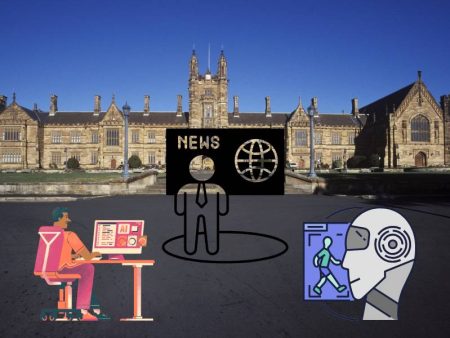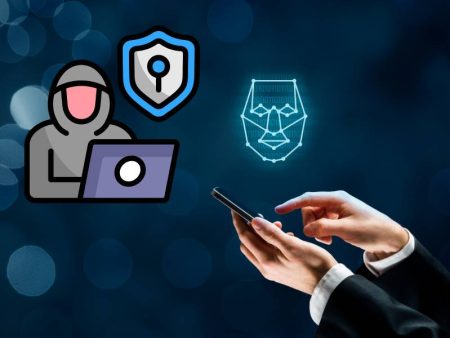Let’s get real for a second.
Have you ever felt something—like genuinely felt something—while listening to an AI voice?
Wait, before you roll your eyes, hear me out. Because I did. And it messed with my brain a little.
A Quick Story (Because That’s How Humans Work)
It started during a late-night spiral on productivity hacks. You know the kind—“How to do more in less time,” blah blah. I stumbled onto a blog post someone had converted into audio. I hit play, thinking I’d tune out. But the voice? It wasn’t cold. It wasn’t robotic. It was calm. Gentle. Patient, even.
The narrator slowed down for emotional parts. Paused in all the right places. And there I was, unexpectedly moved by a synthetic voice reading someone else’s life story. Like… goosebumps, lump-in-the-throat kind of moved.
That’s when I started asking myself: Can AI voices actually build emotional connections? Or am I just projecting?
So What’s Actually Happening Here?
Let’s rewind a bit. Not too long ago, synthetic speech sounded like a broken GPS having an existential crisis. Remember those robotic voices? Flat. Toneless. The stuff of bad sci-fi movies.
But today? AI-generated speech is entering this weirdly beautiful uncanny valley of emotion. We’re now hearing expressions in tone. Soft inflections. Sarcasm. Empathy. It’s not perfect—but it’s evolving fast.
Thanks to tools like AI Voice Generator Unlimited Words, anyone can now create incredibly lifelike audio from text. Unlimited characters. Unlimited emotion. Or… at least, an attempt at emotion.
But is it real? Or are we just used to interpreting voices—even artificial ones—with emotional weight?
The Psychology Behind It (Don’t Worry, It’s Interesting)
Here’s the deal: humans are wired to respond to voices. The tone, rhythm, pitch—they all trigger emotional responses in our brains. Think about babies recognizing their mother’s voice. Or how we can tell when someone’s upset just by a one-word “hello.”
So when we hear an AI voice mimicking those human nuances, our brains kinda… fill in the blanks.
It’s called emotional contagion—where the emotion in a voice can influence how we feel. Even if the source isn’t actually feeling anything. Wild, right?
But Are We Connecting or Just Reacting?
That’s where it gets tricky.
Emotional connection usually requires intention. Real empathy. Shared experience. That thing you feel when someone sees you, hears you, gets you.
So can a synthetic voice, generated by lines of code, really connect with us emotionally? Or are we just reacting to a really good impression?
Honestly? I think the answer lies somewhere in the messy, beautiful middle.
Real-World Moments That Make You Wonder
Let me ask you something.
Have you ever cried during a commercial?
(Yeah, I see you.)
Now imagine one of those ads narrated by a soothing, expressive AI voice. The words are the same. The music is there. The story unfolds just right. And suddenly—bam—tears.
So was it the voice? The script? The timing?
Probably all of it.
We’re not always rational about what moves us. Sometimes, it’s just about how something feels. And if an AI voice delivers those feelings with care and nuance, then who are we to say the connection isn’t real?
Creators Are Tuning In—And Turning Up the Emotion
YouTubers, podcasters, educators, marketers—everyone’s waking up to this shift. They’re realizing that AI voices aren’t just for reading weather forecasts anymore.
They’re for storytelling.
And not just bland, filler-type content. I’m talking emotionally resonant stories. Narratives that tug at your heartstrings or make you laugh at the worst dad joke ever.
With Text To Speech AI, you don’t need a recording studio or a smooth-voiced narrator. You just need your story—and a voice to bring it to life. Whether it’s a blog post about losing a pet or a newsletter about burnout recovery, synthetic speech is becoming a vessel for emotional content.
And yeah, sometimes it’s clunky. Sometimes it mispronounces “gyro” (every. single. time). But the intent? The desire to connect? That’s there. And that’s huge.
Wait… Are We Falling for Robots?
Okay. Let’s not get ahead of ourselves.
This isn’t “Her.” No one’s dating their AI voice just yet. (Well… not publicly anyway.)
But we are starting to interact with synthetic voices in deeper, more meaningful ways. Think:
- Meditation apps that whisper affirmations to help with anxiety
- AI therapists that talk you through a rough patch
- Educational tools that explain complex ideas with warmth and clarity
Isn’t that kind of… intimate?
Not in a weird way. But in a “this thing is showing up for me” kind of way.
And that’s not nothing.
Imperfect, But Honest (Sort Of)
Here’s what I love:
AI voices aren’t trying to be perfect. They mess up. They pause weirdly sometimes. They misread sarcasm.
But in those imperfections, there’s something almost human. And maybe that’s the point.
We don’t need AI to replace human voices. We just need it to augment the ways we connect. To give us more access. More options. More emotional range in how we consume and share content.
And sure, it’ll never replace the raw energy of someone laughing through their own tears during a live story. But that’s okay.
Because what it’s adding? Is powerful.
So, Can Synthetic Voices Truly Connect?
Not yet.
But also… maybe a little.
They mimic us. Reflect us. Echo our rhythms. And in doing so, they reveal just how much our emotional world is tied to sound.
We’re still in the early chapters of this story. But the direction? It’s fascinating.
One day soon, you might hear a bedtime story told by an AI voice that makes your kid giggle. Or listen to an AI-guided meditation that helps you through a panic attack. Or cry while hearing a synthetic narrator read someone’s breakup letter.
And when that happens—when the tears are real and the voice was artificial—maybe we stop asking if the connection was real…
…and just accept that it was.
Final Thoughts (Because We’re Not Robots Either)
Here’s what I believe:
Emotion isn’t just in who’s speaking. It’s in how something is said. And maybe, just maybe, it’s also in the why—the intention behind using a voice at all.
If AI can help people connect with content they’d otherwise scroll past or struggle to access, then that’s emotional value. That’s a win.
So whether you’re a writer, a marketer, a content creator, or just someone who likes having articles read to them on a walk—this is your moment. This is where tech meets heart.
And honestly? I think we’re only scratching the surface of what synthetic speech can do.
Now you tell me—have you ever been emotionally moved by an AI voice? No judgment. Promise.
Drop a comment. Share a clip. Let’s talk about it.
But first, maybe go hug a real human. Just to be safe. 😄
End of Post
Let me know if you’d like a follow-up piece exploring AI voice ethics or how creators can best leverage synthetic speech.


